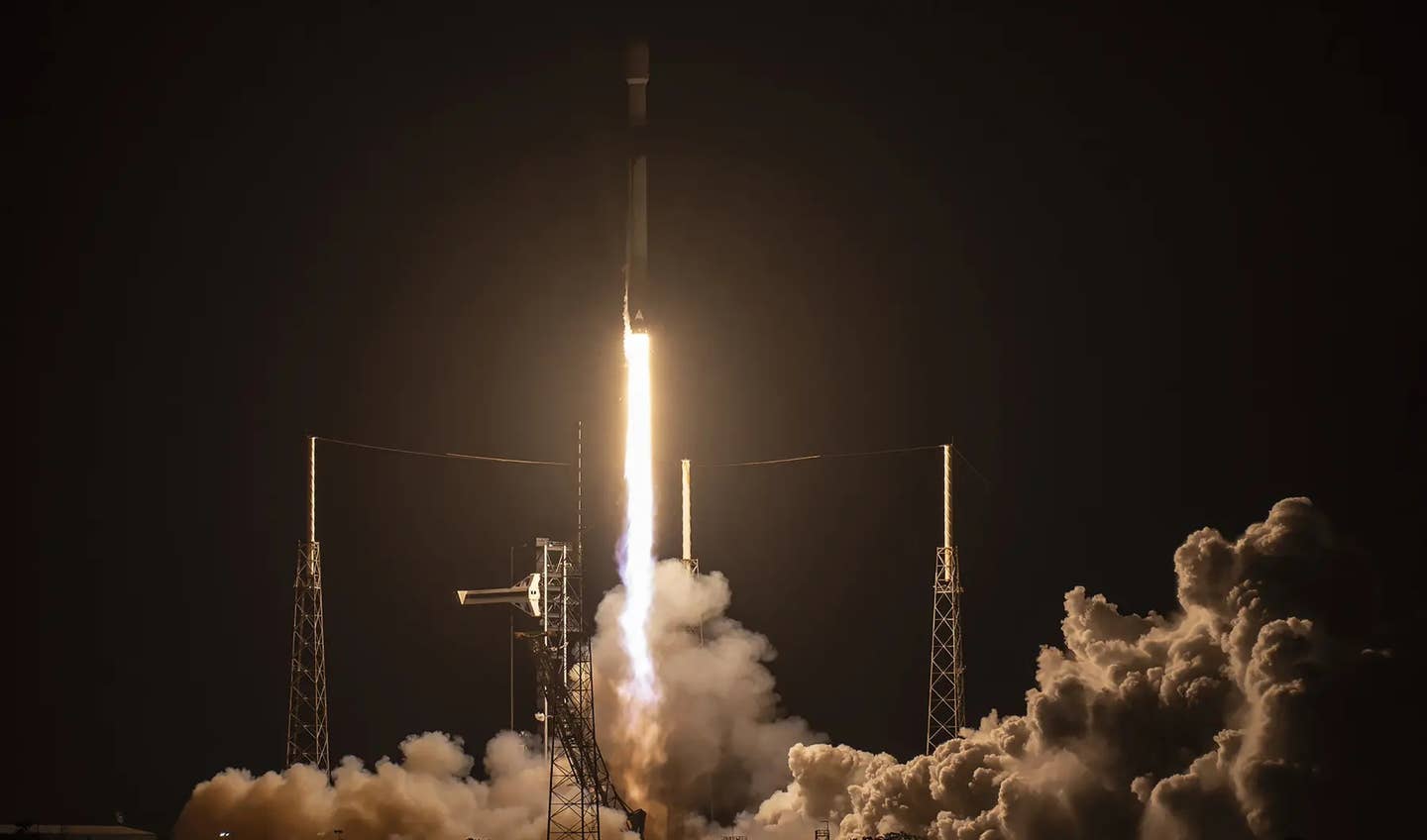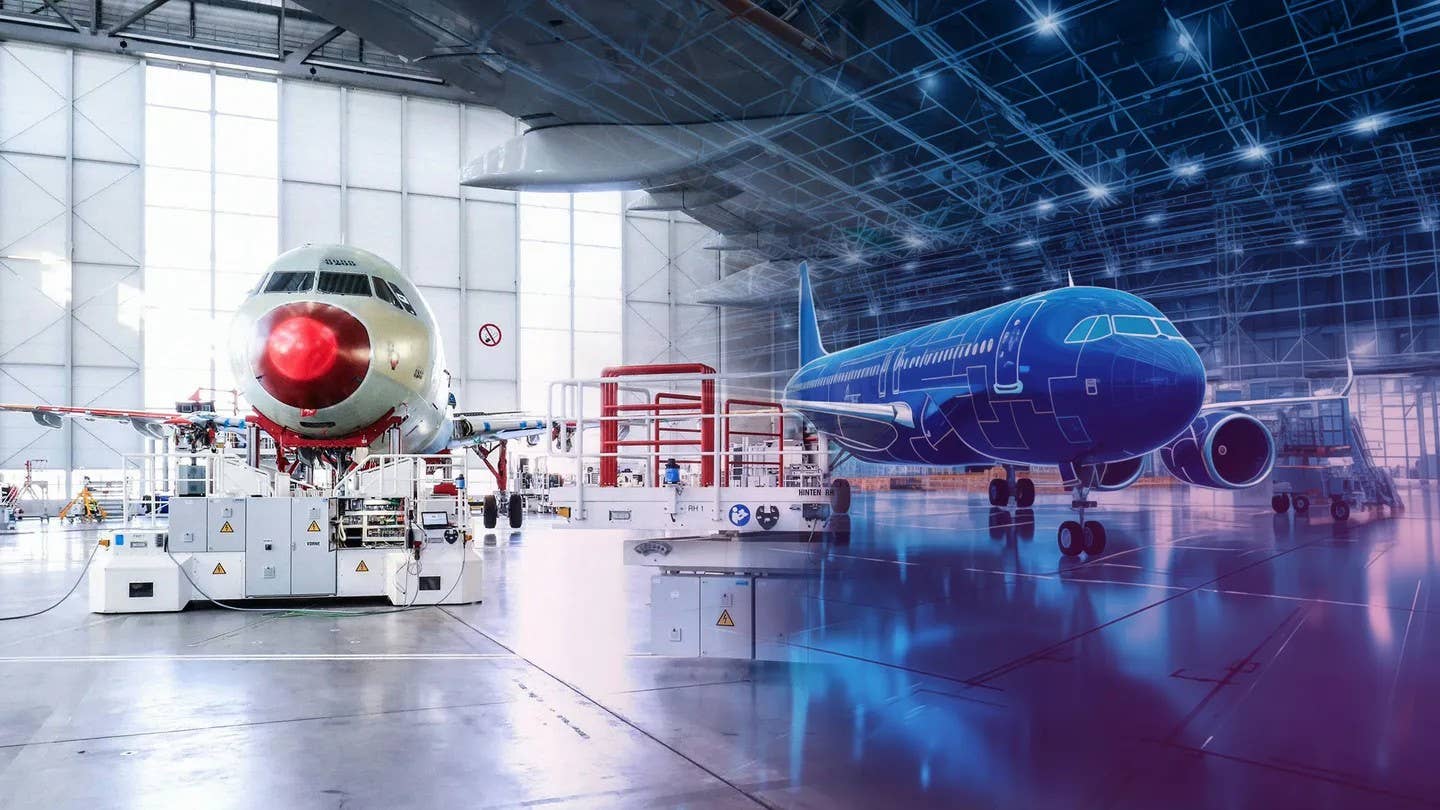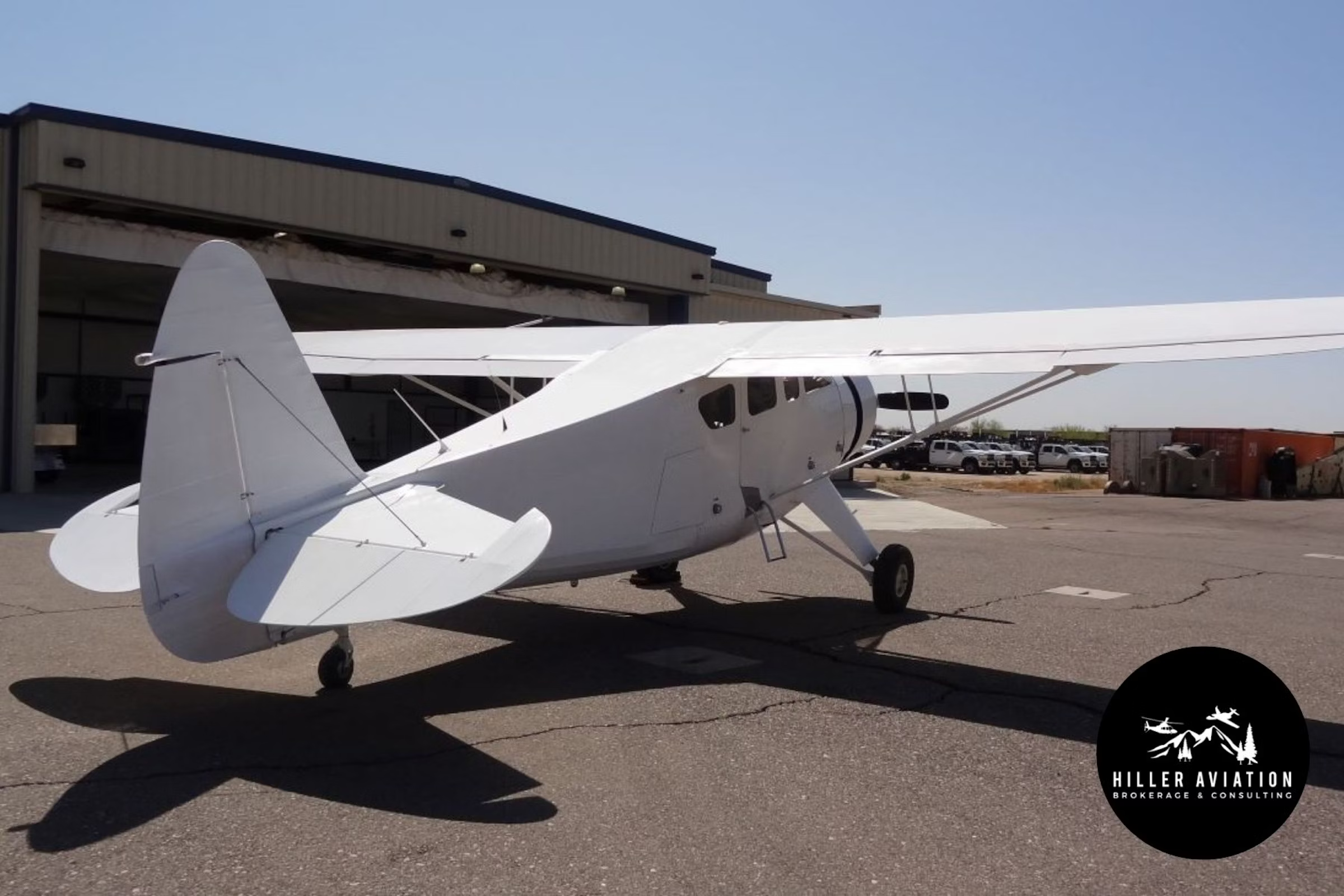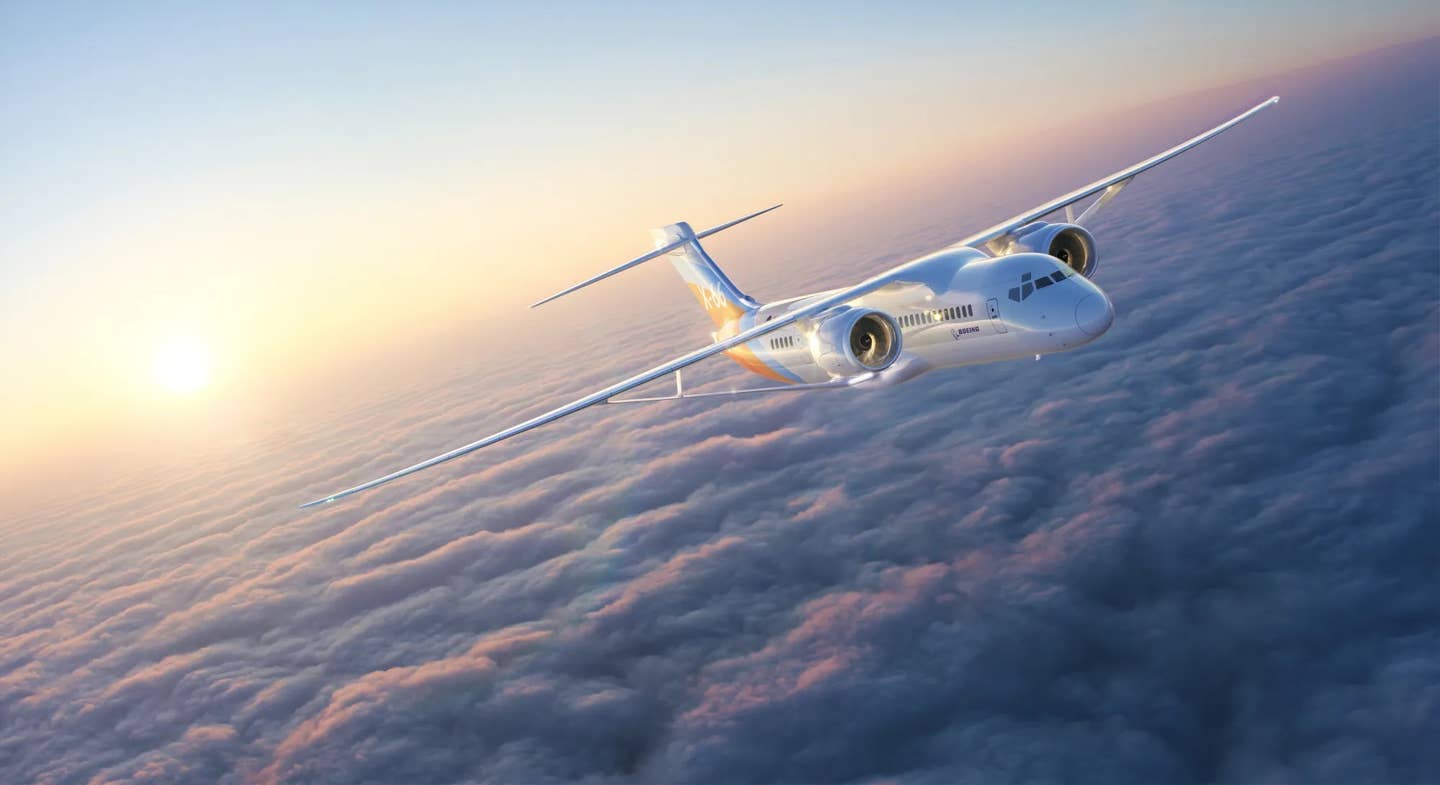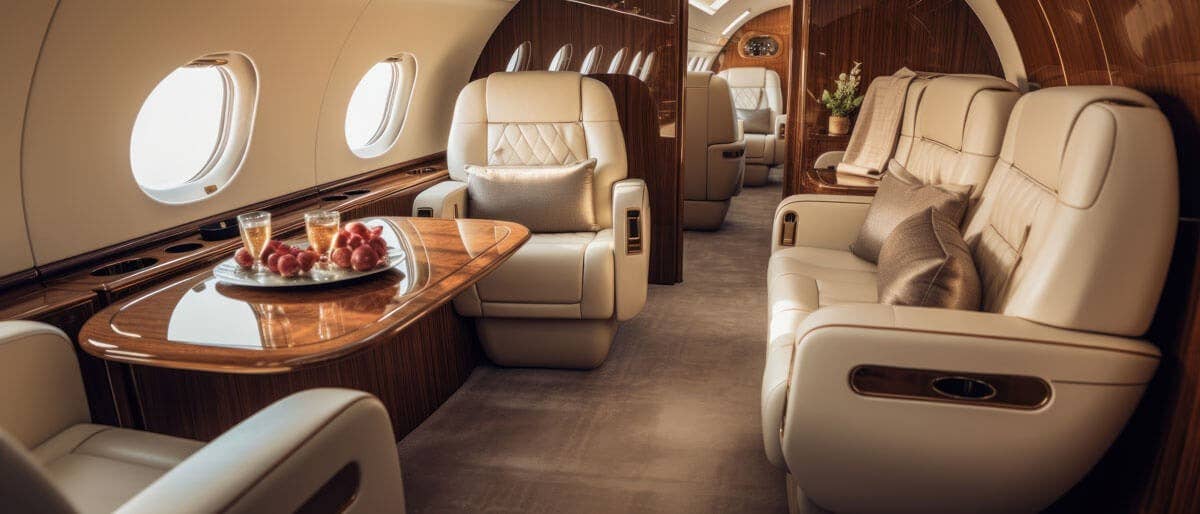Archer Eyes Public Air Taxi Demos, Potential Sale in South Korea
South Korea’s Kakao Mobility tentatively agrees to purchase up to 50 Midnight air taxis and will fund Archer’s commercialization efforts in the country.
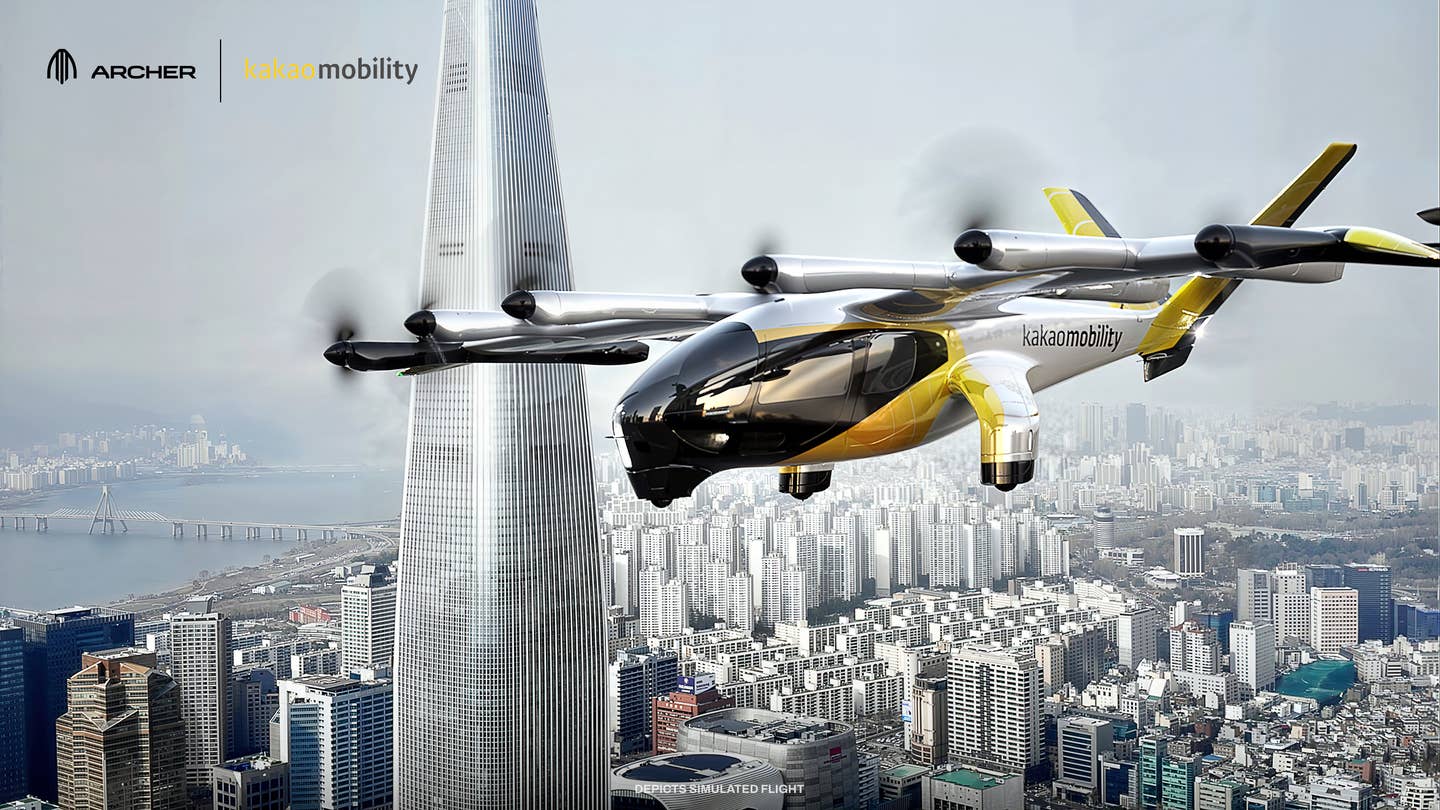
An image depicts simulated flight and operations of Archer’s Midnight air taxi in Seoul, South Korea. [Courtesy: Archer Aviation]
Electric vertical takeoff and landing (eVTOL) air taxi manufacturer Archer Aviation on Thursday continued to expand its global ambitions for Midnight, its flagship model.
The United Airlines partner and Kakao Mobility Corp.—a subsidiary of South Korean conglomerate Kakao which runs Kakao T, a popular taxi-hailing service akin to Uber in the U.S.—signed an agreement that covers the latter’s planned purchase and operation of up to 50 aircraft as early as 2026, beginning in Seoul.
The manufacturer estimates the value of the potential sale, including predelivery payments it expects to receive next year, at about $250 million. Kakao Mobility last year signed a similar agreement with U.K. eVTOL manufacturer Vertical Aerospace.
The taxi-hailing company has also tapped Archer as its eVTOL partner for Korea’s K-UAM Grand Challenge: a multicity, public-private effort to demonstrate eVTOL operations, with an eye toward commercializing those services by 2025. Kakao Mobility will pay Archer a first installment of $7 million this year, followed by a second installment in January, to support the effort. The partners expect to complete a public demonstration later this year.
“We are committed to revolutionizing transportation with Archer’s eVTOL aircraft, ushering in a future of cleaner, faster, and more efficient travel between and within Korean cities,” said Nikhil Goel, chief commercial officer for Archer.
According to Korea’s transport ministry, commuters in the Seoul Capital Area—which, with a population of a quarter of a million people, is one of the largest metropolitan areas in the world and home to half the country’s population—typically spend about 90 minutes per day stuck in traffic.
Archer promises to replace those commutes with estimated 10- to 20-minute air taxi flights, charging for just a few minutes in between. The manufacturer’s five-seat eVTOL is designed for four passengers and a pilot, with a range of about 52 sm (45 nm) and cruise speed of 130 knots.
It claims the aircraft will be cost-competitive with ground-based rideshare services such as Uber, Lyft, and Kakao T, which according to Kakao Mobility has more than 30 million registered users, many of them Seoul.
“The vision is clear—reduce the hours lost in traffic and elevate everyday travel with an electric air taxi service that features Archer’s Midnight aircraft,” said Christopher SungWook Chang, senior vice president of Kakao Mobility.
However, the partners—and the South Korean government—have ambitions to introduce air taxi flights nationwide.
The country’s Ministry of Land, Infrastructure, and Transport in 2021 unveiled the K-UAM Operation Concept 1.0: a blueprint, similar to the FAA’s Innovate28, to commercialize urban air mobility (UAM) services by 2025. Initial flights would be piloted and take place on predefined routes in cities such as Seoul and Incheon, with nationwide introduction of fully autonomous air taxi flights by 2035.
Before then, the government is conducting the K-UAM Grand Challenge to validate the technology.
Kakao Mobility and a consortium that includes electric vehicle charging service LG Uplus, vertiport developer GS Engineering & Construction (GS E&C), and now Archer will be one of three consortiums to participate in public demonstrations under the effort, which seeks to garner public support for UAM services.
One group, which includes flag carrier Korean Air, Hyundai Motor Co., and Korea Telecom, completed the initiative’s first UAM operations demonstration in April. Archer and Kakao Mobility have set a target for their first public demonstration later this year.
Archer through the consortium will also work with regulators to create standards around eVTOL certification and operation. With the help of LG Uplus and GS E&C, the partners plan to construct vertiports, air traffic management systems, and other infrastructure to build a UAM ecosystem in Korea.
Archer competitor Joby Aviation is also part of the K-UAM Grand Challenge and expects to begin demonstration flights this year. The manufacturer in September partnered with SK Telecom—which is supporting it with $100 million in funding—to join a consortium that includes Korea Airports Corporation and Hanwha Systems.
Germany’s Volocopter was the first manufacturer to complete a crewed public eVTOL demonstration in the country in 2021, while California-based Overair last year signed several agreements with Korean partners, including a potential direct sale. Embraer eVTOL subsidiary Eve Air Mobility is also in the mix, having signed an agreement with UAM service provider Moviation for the purchase of its urban air traffic management system.
Beyond South Korea, Archer is looking to introduce Midnight in India, the United Arab Emirates, and U.S. cities such as New York and Chicago.
Like this story? We think you'll also like the Future of FLYING newsletter sent every Thursday afternoon. Sign up now.

Sign-up for newsletters & special offers!
Get the latest FLYING stories & special offers delivered directly to your inbox

